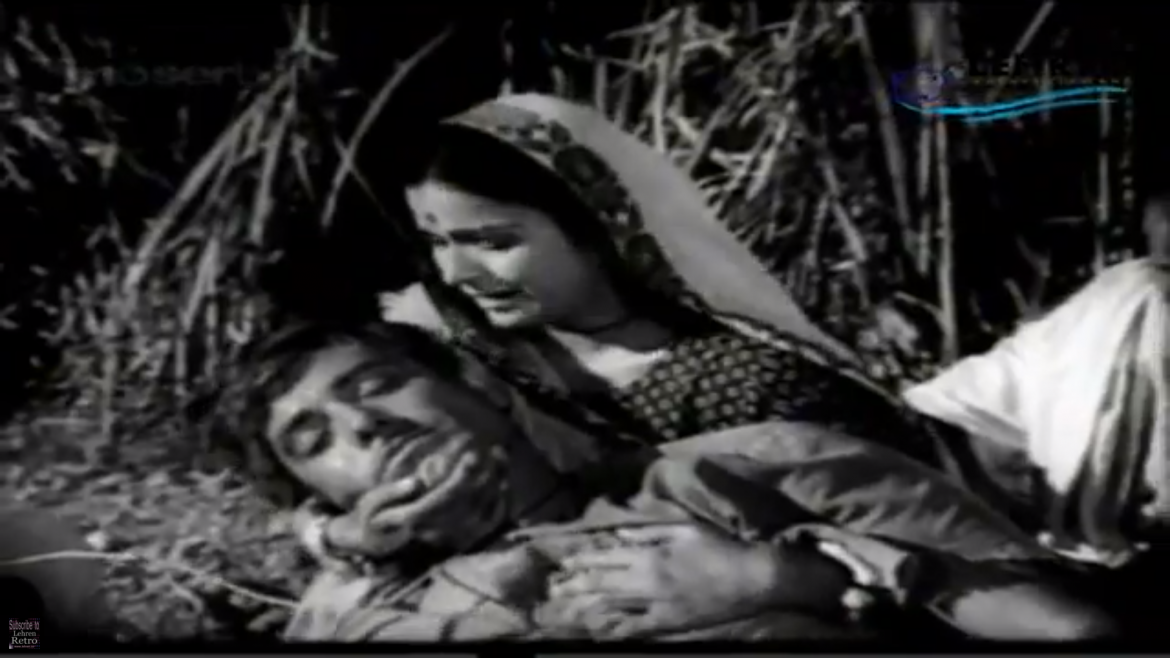Raaj Kumar came to be known for playing urbane parts, but in one of his early films he played a starving farmer to perfection. On the actor’s 95th birth anniversary, a look at Godaan (1963):
A few Hindi films have gone into the heart of rural India. KA Abbas’s Dharti Ke Laal (1946) and Bimal Roy’s Do Bigha Zamin (1953) are acknowledged classics. But there was another, deeply moving film, Godaan (1963), directed by Trilok Jetley, who made just this one film, based on Munshi Premchand’s classic story, published in 1936.
Raaj Kumar, who later came to be known for his urbane characters on screen, played Hori Mahto, wearing coarse rustic costumes, which, as the film progresses, turn to rags. He looked gaunt, with his eyes expressing both the character’s inborn dignity and his loss of hope. Hori suffers not only because he is dirt poor but because he is too decent for his own good. His wife Dhaniya, played by Kamini Kaushal, shows more of a spine, even though a woman in that society was completely powerless. In pre-Independence feudal society, the farmer was always burdened under lagaan (taxes) and debt which he was invariably unable to pay back and thus starved while the landlords and their British masters prospered.
Hori, father of a son Gobar (Mehmood) and two daughters of marriageable age, dreams about buying a cow. When he gets a chance, he takes a cow from the village milkman, Bhola, and promises to pay him later. He also offers to look out for a bride for the lonely old man who wishes to remarry. Gobar’s work consists of delivering fodder for Bhola’s cattle and while delivering it, he falls in love with Bhola’s daughter Jhunia (Shubha Khote).
Hori’s family is thrilled with the cow, but it is as if whenever something good happens in his life, fate conspires against him. His jealous brother Hira poisons the cow and things spiral downhill for Hori and his family. Even though he knows his brother did it, Hori refuses to name him as the culprit, going so far as to swear to the cops that he didn’t see Hira near the cow—this angers Dhaniya and alienates Gobar. Hori is also forced to pay a bribe to the cop, which leaves him with another unpayable debt.
Gobar runs off leaving Jhunia pregnant. Hori and Dhaniya accept her as their daughter-in-law regardless, when her own father throws her out of the house. For this act of kindness that are hauled before the panchayat and ordered to pay Rs 100 as a fine for which Hori has to mortgage his small hut. Dhaniya’s temper tantrums have no effect, the devout Hori believes the panchayat’s command is the word of God.
Then, a furious Bhola demands that they either evict Jhunia or he will confiscate their bullocks as payment for his cow. Hori can only watch in dismay as his only means of an independent livelihood is taken away—without the animals, he cannot plough his fields and will have to become a hired labourer. He has to mortgage his fields to pay for his daughter’s wedding. Gobar, who has got a job and house in the city, visits but only causes trouble. He stages a swang (satirical play) on the moneylender, priest and other elders, for which Hori has to pay the price. Gobar stomps off in a temper, with Jhunia and their baby, saying he does not want to be burdened with the family’s problems. Their crops are auctioned to pay some of the loans, but in spite of his seemingly boundless optimism, Hori knows he will never get out of debt; still he and Dhaniya carry on slogging, even though they are half starved– until finally Hori drops dead. Dhaniya has no money for the traditional godaan (gift of a cow to a Brahmin), but gives up her last possession for the funeral rites.
Premchand has also satirized the rich class and their apathy, but the film edited out a lot and focused on the story of Hori and Dhaniya. Over 85 years after the publication of the story, the condition of the farmer is no better; Banks may have taken over from the moneylender, but debt still continues to drive poor farmers to suicide… or to protest the imposition of unfair laws.

